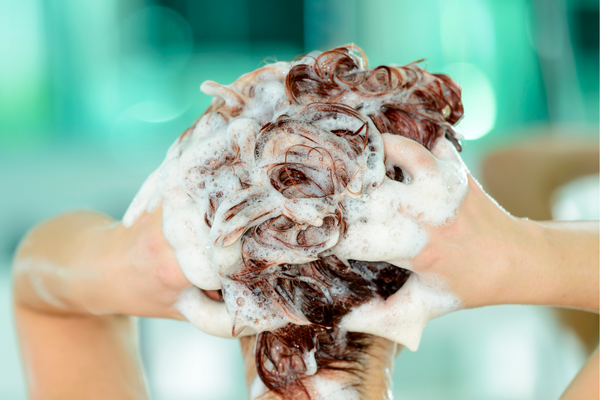One thing we can know for sure is that without a healthy scalp, hair can’t thrive. Scalp health is essential for bountiful hair, but oftentimes, it is unintentionally neglected by clients. Beauty Launchpad recently reached out to Colorproof’s Tim Abney, Global Vice President of Education for his expert recommendations for their article, “4 Beauty Professionals Share Their Scalp Care Tips.”
Some signs that your scalp health is not at its best include an itchy, tender or tight scalp, excessive flaking or dandruff, scalp irritation, dryness or, adversely, oiliness, and/or bumps.
There are various reasons why your scalp might not be in optimal health. A few of these include excessive product use, lack of exfoliation or moisturization, inadequate nutrition or hygiene, stress, hormonal imbalances and certain medications as well as medical conditions (including psoriasis or dermatitis). Hard water or mineral buildup can also contribute to scalp buildup and inflammation.
Healthy hair starts with a happy scalp. The best ways to care for scalp are to use a mild shampoo and conditioner designed for your hair type as well as to regularly massage and exfoliate the scalp. If your scalp feels tight or dry, I suggest incorporating a moisturizing oil or serum to help nourish it such as Smooth Drops which has Avocado Oil and Abyssinian Oil which are great for moisturization. Lastly, protecting scalp from the sun is always a good idea, especially along the part or hairline.
Some quick tips to ensure their optimal scalp health include:
1. Keep the Scalp Clean
While that may sound obvious, it is essential to make sure to adequately remove product and mineral buildup, dirt, oils and excess sebum that may be clogging the hair follicle. Wash hair regularly with a gentle shampoo and conditioner. Once or twice a week, or as needed, use a shampoo for clarifying hair, such as Clear It Up Shampoo to effectively cleanse while refreshing hair and scalp. Additionally, pre-treat the scalp and hair with a pre-shampoo treatment to gently extract minerals and metals commonly found in hard water, well water and pool water.

2. Massage the Scalp
You can routinely massage your scalp in a circular motion to stimulate blood flow and increase circulation. Use a Scalp Cleansing Brush, which is much more effective than fingertips alone; not only does it feel amazing, but it works to exfoliate and stimulate the scalp.

3. Eat a healthy diet
A balanced diet rich in protein, iron and vitamins can help maintain a healthy scalp. Check with your doctor or nutritionist to see if you need to adjust your diet.
4. Avoid tight hairstyles
Tight hairstyles that pull on the scalp and hair shaft can cause damage and breakage over time.
5. Reduce Stress
Easier said than done, but studies show that reducing stress can significantly help prevent hair loss. Recommend that you manage stress with meditation, exercise, self-care rituals or other activities.
6. Avoid sleeping with wet hair
Damp or moist environments can cause bacterial and fungal infections. Not only is wet hair more fragile and prone to breakage–it can also contribute to poor scalp health. If you prefer to wash your hair before bed, I suggest you blow-dry the root area to help protect the scalp.
If hair thinning is a concern, you may want to consider products that specialize in thinning by optimizing scalp health. Curious what the best shampoo for thinning hair is? Colorproof Biorepair Thicken Collection provides a drug-free, thickening solution for thinning hair while still maximizing color longevity. Get growing!



